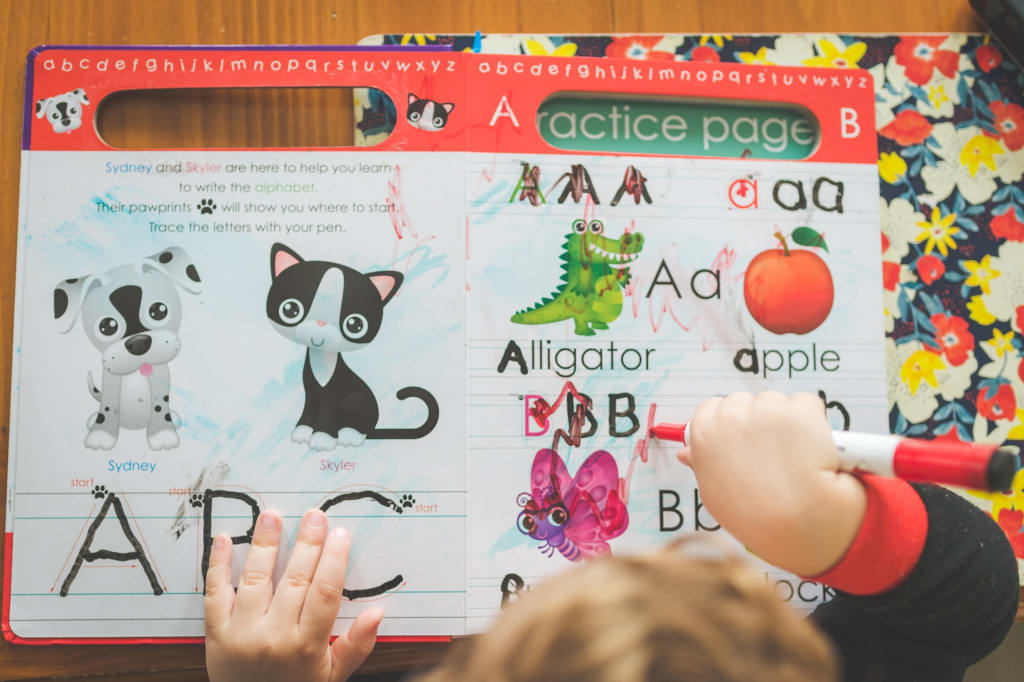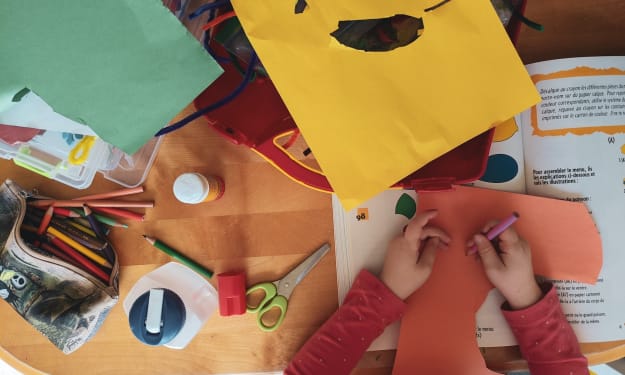Preschool and its advantages on a toddler
Children who attend high-quality preschools have better pre-reading skills, larger vocabularies, and stronger basic math skills when they enter kindergarten than those who do not.

A preschool is a facility that provides education to children between the ages of three and five. It allows them to interact with other children before starting compulsory primary school.
When parents consider preschool for their children, not all are convinced that it is necessary for their development. Some argue that it could lead to early separation issues and be of no real benefit to a child's development because, in a year's time, children will be required to enrol in a nursery school.
Preschool, in reality, is an institution that is specifically designed to benefit young children and better prepare them for a more structured school environment. Attending a preschool with assistive technology for preschoolers or even a daycare school can benefit a child greatly because the curricula are designed to help them understand the things they are exposed to on a daily basis - numbers, letters, shapes, colours - but the most important skills they learn are social and emotional.
Children who attend high-quality preschools have better pre-reading skills, larger vocabularies, and stronger basic math skills when they enter kindergarten than those who do not.
These skills not only benefit children in the future, but they also help to shape their personalities. a Here are a few benefits of a preschool for a toddler:
Provides a solid, early foundation
Younger children, particularly toddlers, are naturally inquisitive and observant, making them easier to mould. As a result, teaching them languages, numbers, colours, and so on at that age is ideal for developing their fertile minds. A preschooler is exposed to a variety of social and academic teachings. To help children develop their interests and personalities, preschool teachers teach these skills through a variety of intuitive games and engaging activities.
Prepares children for school
Even nursery schools are becoming more academically advanced as time goes on. It is for this reason that parents consider enrolling their children in preschool. High-quality preschools, thankfully, will not only prepare a child for nursery and further studies while also allowing them to enjoy their childhood and be themselves.
Promotes emotional development
Emotional intelligence is critical for survival in the world. To learn that, a child must first feel safe and cared for. Preschool allows a child to spend time away from family while also developing relationships outside of the home. Teachers in high-quality preschools work hard to understand each child's individual needs and to determine each child's reaction to various problems/challenges. While teachers frequently offer solutions to children, they also encourage them to find their own and understand how their behaviour affects others, thereby promoting a child's emotional development.
Children are taught to make calculated choices
Most preschool teachers focus on the interests of the children. They are given several options for activities and encouraged to select one that piques their interest the most. This reassures children that their choices and likes/dislikes are important and that they do have options.
Children learn empathy
Preschool also teaches children self-esteem and competence. They are permitted to 'contribute to the community,' i.e. their preschool classroom, by performing various tasks such as feeding the class pet, handing out activity sheets, and so on. They are taught to do things for themselves, such as washing their hands before meals, putting their belongings in specific places, putting toys away after playtime, and other things. More importantly, they are taught to respect the emotions of others. For example, if the teacher instructs the class to sit in a circle and discuss a topic, the students are taught to pay attention to the teacher, listen to others, and wait their turn without interrupting.
Nurtures language and cognitive development
A child's vocabulary expands significantly between the ages of 3 and 5, and they begin to comprehend and speak complex sentences. Preschool teachers with right study material for preschool help children improve their language skills by introducing new terms and words throughout the day, as well as engaging them in thought-provoking activities and discussions. Children learn a variety of language skills through songs, read-aloud sessions, and other activities. They are also taught cognitive skills through activities such as observation, problem-solving, and tests. Most preschools also encourage parents to help their children develop these skills further by providing ongoing/extended activities that they can do at home with them.
Curiosity is encouraged
When preschool teachers ask questions to assess a child's knowledge, the goal is not to elicit a correct or appropriate response, but rather to foster a child's natural curiosity. Children are motivated to learn as a result of this. Their natural curiosity is enhanced by activities that cater to their interests and imaginations.
Thoughtfully prepare children for further the future
Children observe their parents and other adults purchasing groceries, calculating bills, and interacting with a wide range of people for a variety of reasons. This creates a desire to be equally competent and contribute to society (subconsciously). In a preschool setting, their abilities to interact with adults are primed and honed through activities and games. These are specifically designed to assist them with additional academics such as math, literacy, science, and so on.
About the Creator
Amit Kumar
Full-time thinker & part-time writer...






Comments
There are no comments for this story
Be the first to respond and start the conversation.